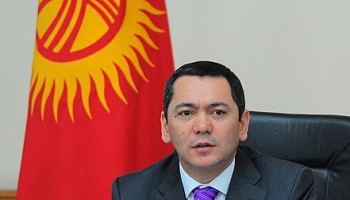Konstantin Ignatov, the current leader of OneCoin, was indicted on a ‘wire fraud conspiracy charge.’ His sister Ruja Ignatova, the founder and original leader of OneCoin, had been charged with “wire fraud, securities fraud, and money laundering offenses.”
The duo duped victims into investing billions of dollars in the fake crypto-currency, utilising “an old-school pyramid scheme on a new-school platform,” stated New York County District Attorney Cyrus R. Vance, Jr. He accuses them of “compromising the integrity of New York’s financial system.”
The crypto-currency was established for the sole purpose of defrauding investors said FBI Assistant Director-in-Charge William Sweeney, Jr., but it was advertised as a product for making faster payments.
“Unlike authentic crypto-currencies, which maintain records of their investors’ transaction history, OneCoin had no real value. It offered investors no method of tracing their money, and it could not be used to purchase anything,” he said.
OneCoin also claimed that the crypto-currency was “mined” in the same way as other crypto-currencies, by using mining servers maintained and operated by the company, and that the value of it was based on market supply and demand.
However, the value was determined internally and not based on market supply and demand and OneCoins were not mined using computer resources. OneCoin also claimed to have its own private blockchain – a public and verifiable digital ledger with a record of all transactions – which it did not.
Members received commissions for recruiting others to purchase crypto-currency packages, and also earned revenue from the sale of education packages worth 130 (US$146) to $14,046 to more than 530,000 customers. OneCoin claim to have more than three million members worldwide.
OneCoin-derived funds were laundered through a series of purported “investment fund” accounts. A former partner of a major US law firm, Mark Scott, also assisted the laundering of more than $400 million through investment funds holding bank accounts at financial institutions in the Cayman Islands and the Republic of Ireland, among other locations.
The two siblings and Scott are responsible for siphoning investor funds exceeding $3.7 billion, OneCoin generated $3.8 billion in revenue between 2014 and 2016.
Obtained emails show that, in 2014 when the scheme was conceived, Ignatova’s exit strategy in the case of impending legal action was to "take the money and run and blame someone else for this” according to the Bulgarian media outlet Capital.
Capital reports that “between the fourth quarter of 2014 and the third quarter of 2016 alone, OneCoin Ltd. generated $3.7 billion in sales revenue and earned profits of $2.5 billion.”
Bulgarian journalists from Capital demonstrated how Ignatova diverted the proceeds of OneCoin through expensive real estate in the Bulgarian capital, Sofia.
Ignatova’s Dubai based companies were also involved in lucrative real estate acquisitions, organized by the girlfriend of notorious drug lord Hristoforos Amanatidis, aka Taki, according to Capital.






